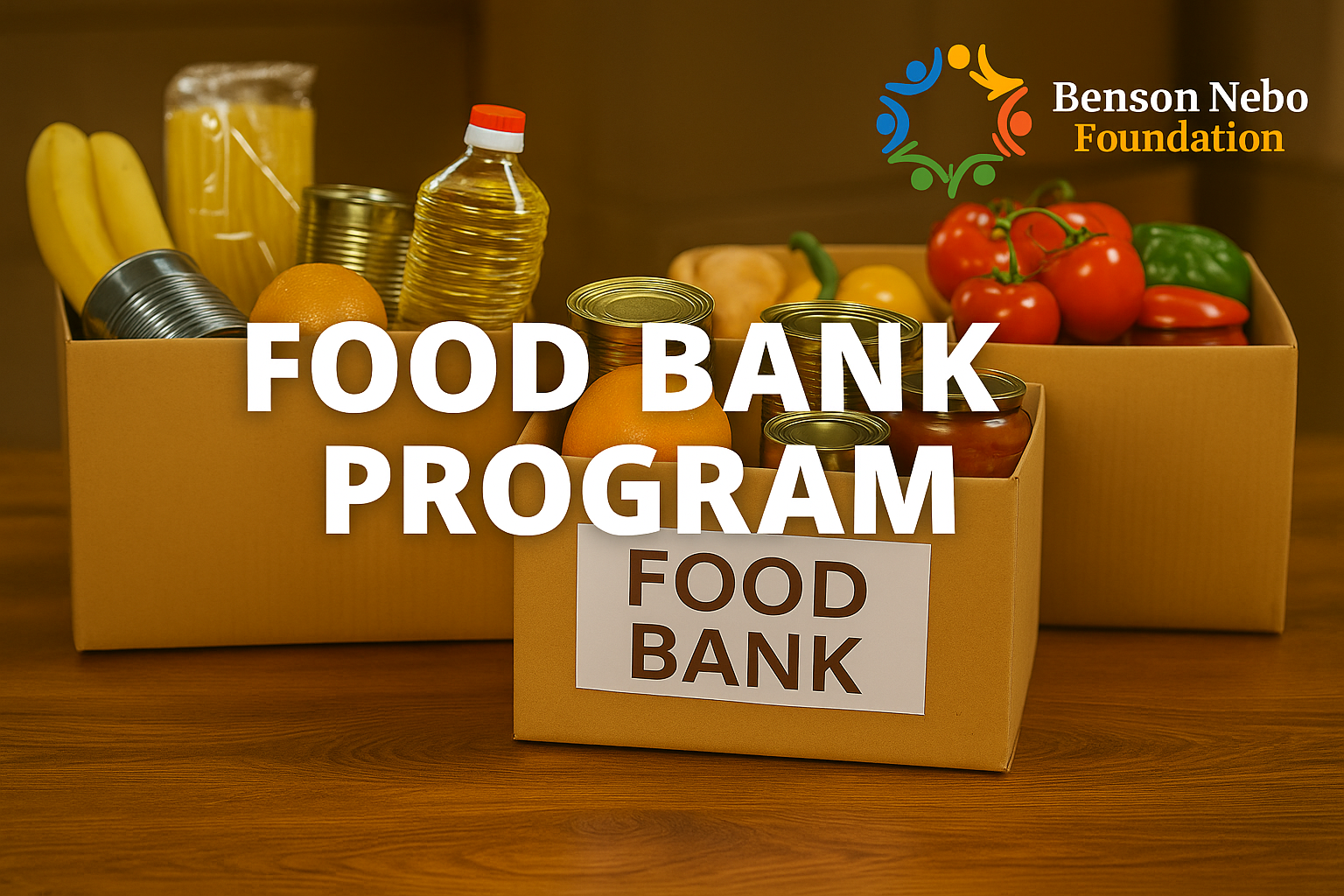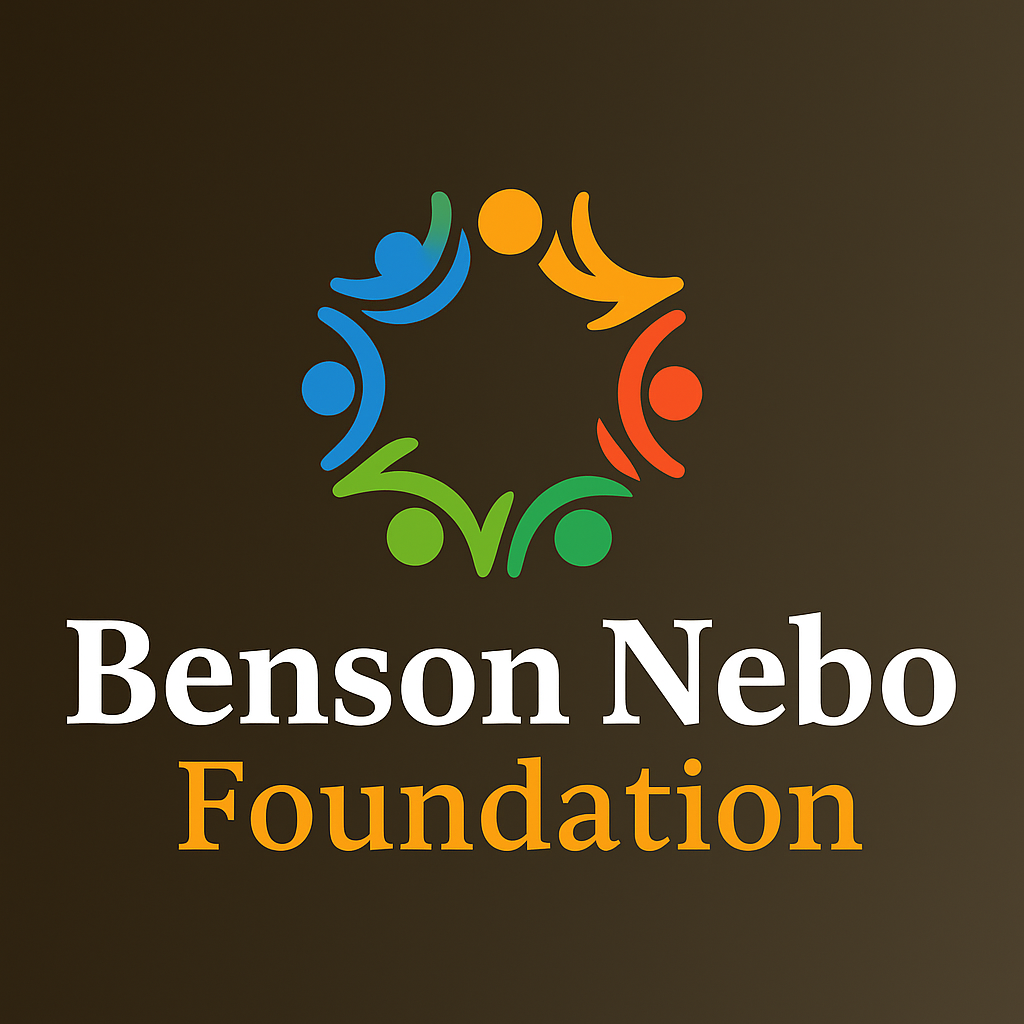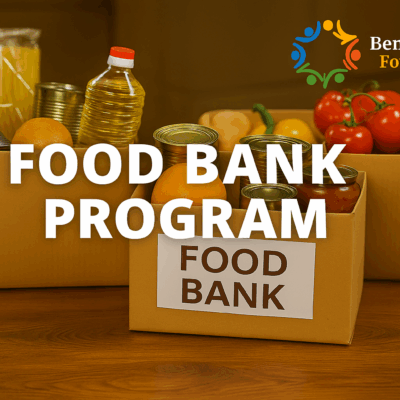
🍲 Benson Nebo Foundation Food Bank Program
“Feeding Hope, Inspiring a Better Enugu.”
🎯 AIM
The Benson Nebo Foundation Food Bank Program aims to combat hunger and food insecurity across all 17 Local Government Areas of Enugu State by providing consistent food assistance to vulnerable individuals and families. The program seeks to ensure that no citizen goes hungry by building a sustainable system of food collection, storage, and equitable distribution fostering compassion, dignity, and community solidarity.
OBJECTIVES
-
Alleviate Hunger and Malnutrition
-
To reduce hunger among low-income households, the elderly, widows, children, and other vulnerable groups.
-
To ensure that all beneficiaries have access to basic, nutritious food that promotes health and wellbeing.
-
-
Establish Food Distribution Centers Across All LGAs
-
To set up 17 functional food bank outlets one in each Local Government Area of Enugu State.
-
To create community-level collection and storage hubs managed by local coordinators and volunteers.
-
-
Promote Community Participation and Volunteerism
-
To engage community leaders, youth groups, and religious institutions in identifying beneficiaries and distributing food.
-
To encourage volunteerism and civic responsibility as a way of strengthening community ties.
-
-
Reduce Food Waste Through Redistribution
-
To partner with farms, markets, supermarkets, and food producers to recover surplus food and redistribute it to those in need.
-
To establish logistics and preservation systems that ensure food safety and minimal waste.
-
-
Empower Local Economies and Farmers
-
To source locally produced food items (rice, beans, garri, yam, vegetables, etc.) directly from small-scale farmers.
-
To support rural farmers through steady purchase and partnership arrangements that stimulate local economies.
-
-
Strengthen Nutrition Awareness and Public Health
-
To educate communities about balanced diets, hygiene, and proper food handling.
-
To collaborate with local health departments and NGOs to promote better nutrition among children and expectant mothers.
-
-
Ensure Fairness, Transparency, and Accountability
-
To maintain transparent records of food donations, disbursements, and beneficiaries.
-
To introduce a digital monitoring system that tracks supply chains, inventory, and impact reports.
-
-
Foster Partnerships and Donor Engagement
-
To collaborate with government agencies, private organizations, international donors, and individuals to sustain the program.
-
To encourage corporate social responsibility (CSR) contributions from businesses operating within Enugu State.
-
-
Emergency Response and Relief
-
To use the food bank system as a rapid-response mechanism during natural disasters, pandemics, or community crises.
-
To ensure quick mobilization of food support in emergencies.
-
-
Promote Sustainable Development Goals (SDGs)
-
To directly contribute to SDG 2 (Zero Hunger) and SDG 3 (Good Health and Well-being).
-
To integrate environmental sustainability through waste reduction, local sourcing, and eco-friendly packaging.
🌍 EXPECTED OUTCOMES
-
Improved access to food and nutrition for thousands of families across all 17 LGAs.
-
Reduction in hunger-related illnesses and malnutrition rates.
-
Enhanced community participation in charitable and development initiatives.
-
Strengthened rural economies through local food sourcing and distribution partnerships.
-
Sustainable, transparent, and community-driven hunger relief system in Enugu State.
💡 Our Mission
“Together, we can feed the hungry and build a stronger, united Enugu.”

